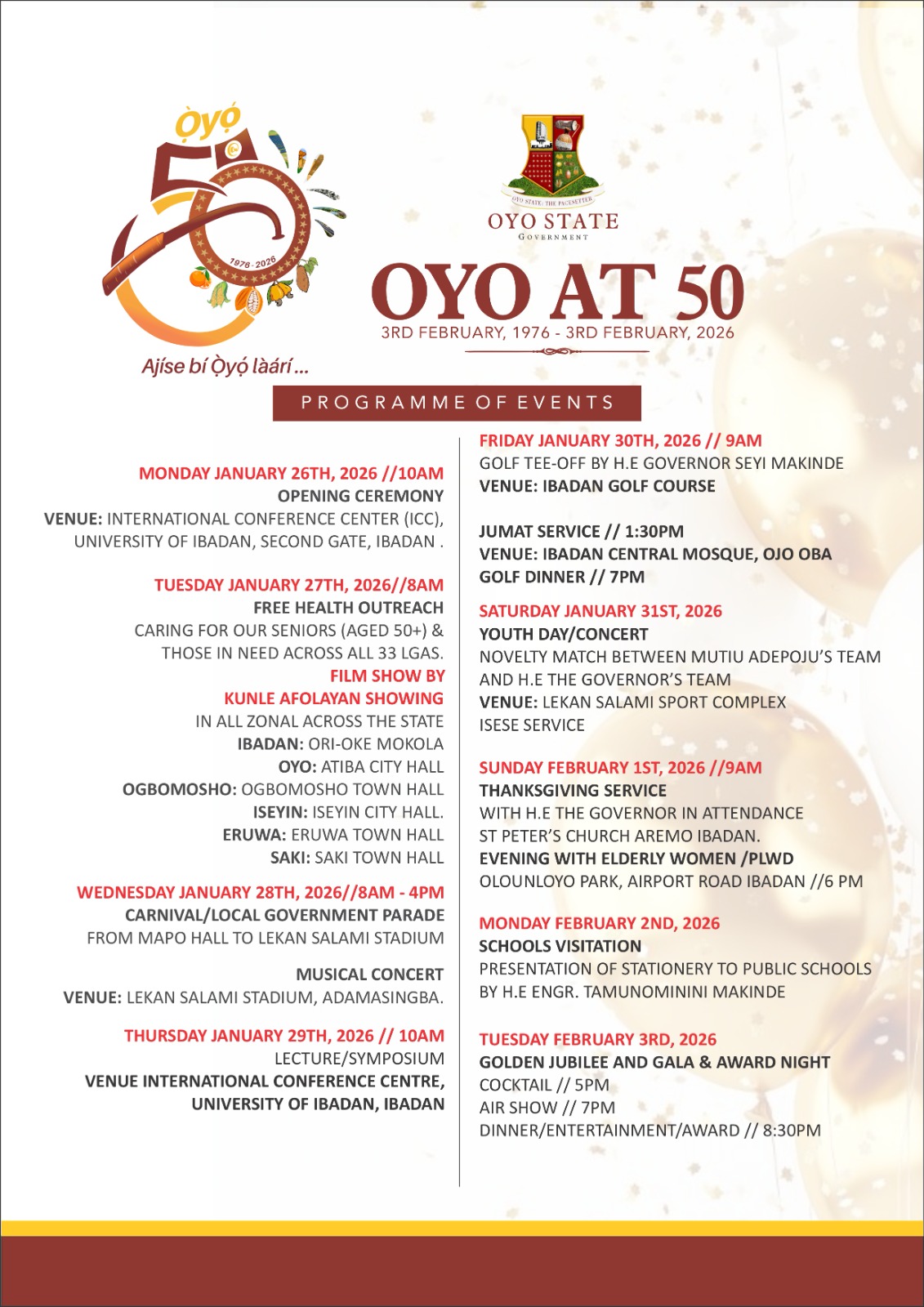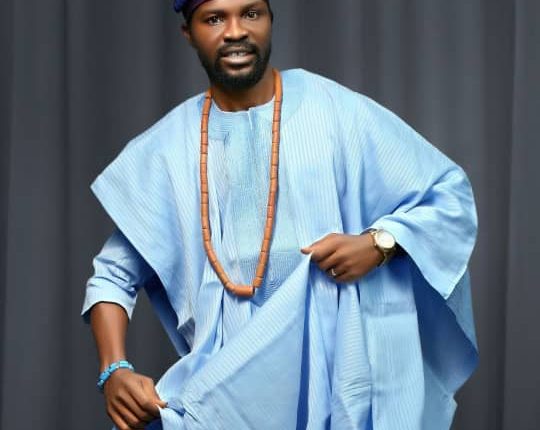Oyo Empire Is Way Older Than British, Mali Empire | Siyanbola Oladigbolu


According to siyanbola oladigbolu. One of unrelented candidates eying the stool of alaafin of oyo.
The religion chroniclers can twist anything in favour of their beliefs. one must have belief in a particular religion of which There’s nothing wrong about that. However, favourable attribution has a limit. The historians have to be very careful when it comes to identity, information, and origin .

When writing about the monarchical form of governance in black race, there’s no way anyone can write about imperialism and skip the rise of the oyo Empire in 12-10 .
the establishment of the British Empire started by overseas settlements in the 16th century. This means five hundred and fifty years after oyo has become a treat to the whole western parts of Africa due to her excessive political power, economic power, and highly sophisticated spiritual power.
What marvelled the historians most was how a group of people held the whole yoruba-land ransom and extended their authority to dahome, Benin Republic, and some part of god cost .( Present day Ghana )
Oyo became an untouchable independent group of people under GOD for over a good seven hundred years . The british diplomats became speechless when they realised that the people they were coming to colonise had been a powerful colniser even before they thought of the monachical form of governance in Britain.

The egba was a proper example of remiter and a good loyalist of oyo Empire until they got freedom .
Abeokuta was founded in 1830 by Sodeke , a hunter and leader of the Egba refugees who fled from the disintegrating Oyo empire. The .
From Oyo-ile, oyo igboho and oyo ajaka. Oyos used to initiate wars every three years just to flex their muscles and see if there was anyone to challenge their military might, and that would also put more fear on neighbouring towns.
The research revealed that after the fall of the oyo empire in1835.
The oyos spread across what is today known as Southwest. That’s why there’s no part of yoruba-land who is not one way or the other related to oyo. Ede was founded by Timi agbale with instruction of alaafin. Large numbers of people claim to be ibadan are originally from oyo. Some part of remo was founded by oyo Prince .
Offa town was founded by Prince Olalomi Olofa-gangan; a crown. prince from Oyo, and a direct descendant of alaafin Kori 1395.
The larger part of yewa were the great hunters and farmers who migrated from Oyo-ile to settled in present day yewa land .
That tells you how powerful and expensive hold oyo empire was.
The influence of alaafin was never rivalled and can never be.
The hold Mali kingdom was founded by Sundiata Keita, a legendary warrior king, in 1230. Mali was never an empire throughout his raigne.
The mali began as a small Mandinka kingdom at the upper reaches of the Niger River, centered around the Manding region.It began to develop during the 11th and 12th centuries as Wagadu, now known as Ghana declined and trade routes shifted southward. However , the history of the Mali as Empire before the 14th century was unclear, as there are conflicting and imprecise accounts by both Arabs preachers and oral traditionalists. The first ruler for which there is accurate written information is Sundiata Keita, a warrior-prince of the Keita dynasty who was called upon to free the local people from the rule of the king of the Sosso Empire, Soumaoro Kanté. The conquest of Sosso in 1235 marked the emergence of Mali as a major power.
Following the death of Sundiata Keita, in 12-55, the kings of Mali were referred to by the title mansa. In 1285, Sakoura, a former royal court slave, became emperor and was one of Mali’s most powerful rulers, greatly expanding the kingdom’s territory. He made a pilgrimage to Mecca during the reign of King Sultan An-Nasir Muhammad ( 1298–1308), but died on his voyage home. His graund duther’s son, abubakar kankan musa. Popularly known as (Mansa musa) took the throne and He emulated his maternal great-grandfather by making a famous pilgrimage to Mecca from 1324 to 1326, where his generous gifts and his expenditure of gold caused significant inflation in Egypt.succeeded him as mansa in 1337, but was deposed by his uncle Suleyman in 1341. It was during Suleyman’s 19-year reign that Ibn Battuta visited Mali. Suleyman’s death marked the end of Mali’s Golden Age and the beginning of a slow decline.
Tarikh al-Sudan records that Mali was still a sizeable state in the 15th century. At that time, the Venetian explorer Alvise Cadamosto and Portuguese traders confirmed that the peoples who settled within Gambia River were still subject to the mansa of Mali Upon Leo Africanus’s visit at the beginning of the 16th century, his descriptions of the territorial domains of Mali showed that it was still a kingdom of considerable size. However, from 1507 onwards, neighbouring states such as Diarra, Great Fulo, and the Songhai Empire chipped away at Mali’s borders. In 1542, the Songhai invaded the capital but were unsuccessful in conquering the empire. During the 17th century, the Mali Empire faced incursions from the Bamana Empire, who ultimately sacked and burned the capital in 1670. The Mali Empire rapidly disintegrated, being replaced by independent chiefdoms. The Keitas retreated to the town of Kangaba, where they became provincial chiefs.
Illustrationally, mali only raigned as an empire with just 200 years between the 15th and 17th centuries . The first person to write about the most popular mansa of mali, abubakar kankan musa was a great islamic crusader, sehik bun khaldunny. He was born on 27 May 1332 and died on March 17, 1406, of which mansa musa himself died in 1337. Mali was never an empire during the era of mansa musa .
The Muslims preachers used to attribute so many things that do not exit in favour of their fellow Muslims kingdoms.
Samuel Johnson only tried his best in writing little history he knew about oyo. There are countless ones in archives.
Oyo empire is known to the orientalist across the world.
Simply because Islam was never heard of in yoruba-land in th that era, the Arabian orientalist wrote so much exaggerating history to elevate Mali , being a Muslim kingdom under the leadership of Sultan
Shongai empire was even closer, it break out after the fall of 200 years of the raigned mali Empire.
The kingdom (Shongai) grew after the decline of the Mali Empire. The Songhai people broke away from Mali control after Mansa Musa’s death. Centred in the city of Gao along the Niger River, the Songhai built up a large army and expanded their territory.
None of all, this empire is in any way smelled the existence of the oyo Empire.
The only contemporary of oyo is Ottoman Empire that was founded in 1299 and rather quickly expanded from its origins as one of many Turkish states that rose to power after the decline of the Seljuq Turks in Anatolia (modern-day Turkey).
Ottoman Empire officially ended in 1922 when the title of Ottoman Sultan was disbounded and Turkey was declared a republic on October 29, 1923, when Mustafa Kemal Atatürk , an army officer, founded the independent Republic of Turkey.3 Nov 2017.
...For the latest news update, Subscribe to our Whatsapp Channel (Click Here) and join our Telegram Update Group (Click Here)

You can also advertise your Product and Services on our page for more patronage
Contact us today by sending your Stories, Articles, Events, and Eyewitness Reports for publications as well as products and services for advertisement to westerndailies2018@gmail.com or WhatsApp (+2348058448531) for more information



